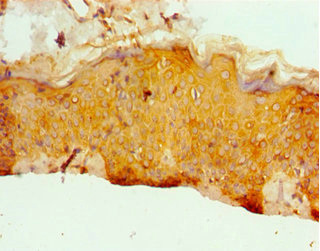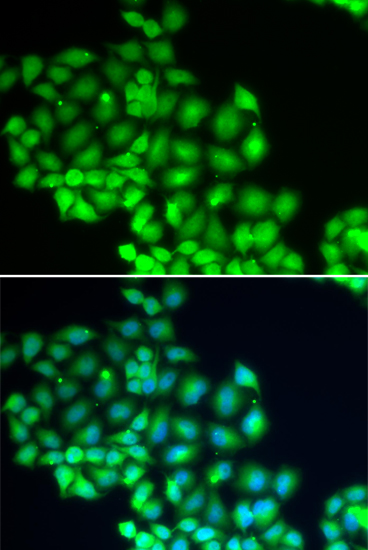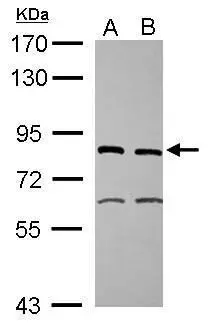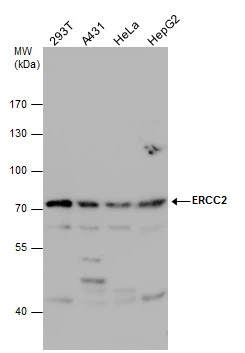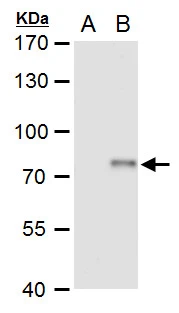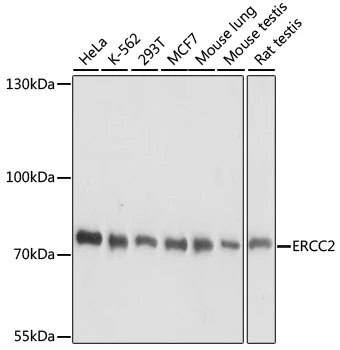
WB analysis of various sample lysates using GTX66267 XPD antibody. Dilution : 1:1000 Loading : 25μg per lane
XPD antibody
GTX66267
ApplicationsWestern Blot
Product group Antibodies
ReactivityHuman, Mouse, Rat
TargetERCC2
Overview
- SupplierGeneTex
- Product NameXPD antibody
- Delivery Days Customer9
- Application Supplier NoteWB: 1:500 - 1:2000. *Optimal dilutions/concentrations should be determined by the researcher.Not tested in other applications.
- ApplicationsWestern Blot
- CertificationResearch Use Only
- ClonalityPolyclonal
- ConjugateUnconjugated
- Gene ID2068
- Target nameERCC2
- Target descriptionERCC excision repair 2, TFIIH core complex helicase subunit
- Target synonymsCOFS2, CXPD, EM9, TFIIH, TTD, TTD1, XPD, general transcription and DNA repair factor IIH helicase subunit XPD, BTF2 p80, DNA 5'-3' helicase XPD, DNA excision repair protein ERCC-2, DNA repair protein complementing XP-D cells, TFIIH 80 kDa subunit, TFIIH basal transcription factor complex 80 kDa subunit, TFIIH basal transcription factor complex helicase XPD subunit, TFIIH p80, TFIIH subunit XPD, basic transcription factor 2 80 kDa subunit, excision repair cross-complementation group 2, excision repair cross-complementing rodent repair deficiency, complementation group 2, xeroderma pigmentosum complementary group D, xeroderma pigmentosum group D-complementing protein
- HostRabbit
- IsotypeIgG
- Protein IDP18074
- Protein NameGeneral transcription and DNA repair factor IIH helicase subunit XPD
- Scientific DescriptionThe nucleotide excision repair pathway is a mechanism to repair damage to DNA. The protein encoded by this gene is involved in transcription-coupled nucleotide excision repair and is an integral member of the basal transcription factor BTF2/TFIIH complex. The gene product has ATP-dependent DNA helicase activity and belongs to the RAD3/XPD subfamily of helicases. Defects in this gene can result in three different disorders, the cancer-prone syndrome xeroderma pigmentosum complementation group D, trichothiodystrophy, and Cockayne syndrome. Alternatively spliced transcript variants encoding different isoforms have been found for this gene. [provided by RefSeq, Aug 2008]
- ReactivityHuman, Mouse, Rat
- Storage Instruction-20°C or -80°C,2°C to 8°C
- UNSPSC41116161
References
- Deacetylase Plus Bromodomain Inhibition Downregulates ERCC2 and Suppresses the Growth of Metastatic Colon Cancer Cells. Kapoor S et al., 2021 Mar 22, Cancers (Basel)Read this paper

